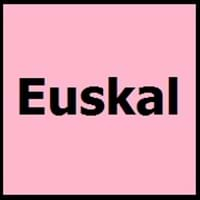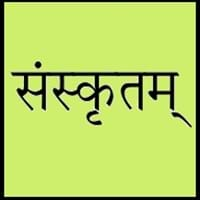Basque vs Sanskrit
Countries
Basque Autonomous Community, Navarre
India
National Language
France, Spain
India
Second Language
Not spoken in any of the countries
Not spoken in any of the countries
Speaking Continents
Asia, Europe
Asia
Minority Language
Not spoken in any of the countries
Not spoken in any of the countries
Regulated By
Euskaltzaindia, National Languages Committee
Not Available
Interesting Facts
- The Basque language is the oldest European language.
- Basque alphabet include many Roman letters.
- Sanskrit language has highest number of vocabularies than any other language.
- Sanskrit Language has proved to help in speech therapy, also it increases concentration and helps to learn maths and science better.
Similar To
Spanish
Old German Language
Derived From
Not Available
Prakrit Language
Alphabets in
Basque-Alphabets.jpg#200
Sanskrit-Alphabets.jpg#200
Writing Direction
Not Available
Left-To-Right, Horizontal
Hello
Kaixo
नमस्कारः (namaskāraḥ)
Thank You
Eskerrik asko
धन्यवादाः (dhanyawādāh)
How Are You?
Zer moduz?
कथमस्ति भवान् (kathamasti bhawān)
Good Night
Gabon
शुभरात्री (shubharātrī)
Good Evening
Arratsalde on
शुभः सायंकालः
Good Afternoon
Arratsalde on
शुभ दुपार
Good Morning
Egun on
सुप्रभातम् (suprabhātam)
Please
Mesedez
कृपया (kripayā)
Sorry
Barkatu
कृपया क्षम्यताम् (kripayā kshamyatām)
Bye
Agur
पुनः मिलामः(punah milamah)
I Love You
Maite zaitut
त्वामनुरजामि (twāmanurajāmi)
Excuse Me
Barkatu
कृपया क्षम्यताम् (kripayā kshamyatām)
Dialect 1
Navarro-Lapurdian
Not present
Where They Speak
France
Not Available
How Many People Speak
Not Available
Dialect 2
Souletin
Not present
Where They Speak
France, Soule, Spain
Not Available
How Many People Speak
Not Available
Dialect 3
Biscayan
Not present
Where They Speak
Spain
Not Available
Speaking Population
Not Available
Not Available
Native Name
Not available
संस्कृतम् (saṃskṛtam)
Alternative Names
Euskara, Euskera, Vascuense
Not Available
French Name
basque
sanskrit
German Name
Baskisch
Sanskrit
Pronunciation
Not Available
[səmskr̩t̪əm]
Ethnicity
Basque people
Not Available
Language Family
Vasconic Family
Indo-European Family
Subgroup
Not Available
Indo-Iranian
Branch
Not Available
Indic
Early Forms
Proto-Basque, Aquitanian
Vedic Sanskrit
Standard Forms
Basque
Sanskrit
Signed Forms
Not Available
Not Available
Scope
Not Available
Individual
ISO 639 6
Not Available
Not Available
Glottocode
basq1248
sans1269
Linguasphere
40-AAA-a
No data available
Language Type
Not Available
Ancient
Language Linguistic Typology
Subject-Object-Verb
Subject-Object-Verb
Language Morphological Typology
Agglutinative
Synthetic
Basque and Sanskrit Language History
Comparison of Basque vs Sanskrit language history gives us differences between origin of Basque and Sanskrit language. History of Basque language states that this language originated in c. 1000 whereas history of Sanskrit language states that this language originated in 2000 B.C.. Family of the language also forms a part of history of that language. More on language families of these languages can be found out on Basque and Sanskrit Language History.
Basque and Sanskrit Greetings
People around the world use different languages to interact with each other. Even if we cannot communicate fluently in any language, it will always be beneficial to know about some of the common greetings or phrases from that language. This is where Basque and Sanskrit greetings helps you to understand basic phrases in Basque and Sanskrit language. Basque word for "Hello" is Kaixo or Sanskrit word for "Thank You" is धन्यवादाः (dhanyawādāh). Find more of such common Basque Greetings and Sanskrit Greetings. These greetings will help you to be more confident when conversing with natives that speak these languages.
Basque vs Sanskrit Difficulty
The Basque vs Sanskrit difficulty level basically depends on the number of Basque Alphabets and Sanskrit Alphabets. Also the number of vowels and consonants in the language plays an important role in deciding the difficulty level of that language. The important points to be considered when we compare Basque and Sanskrit are the origin, speaking countries, language family, different greetings, speaking population of these languages. Want to know in Basque and Sanskrit, which language is harder to learn? Time required to learn Basque is 88 weeks while to learn Sanskrit time required is 20 weeks.





